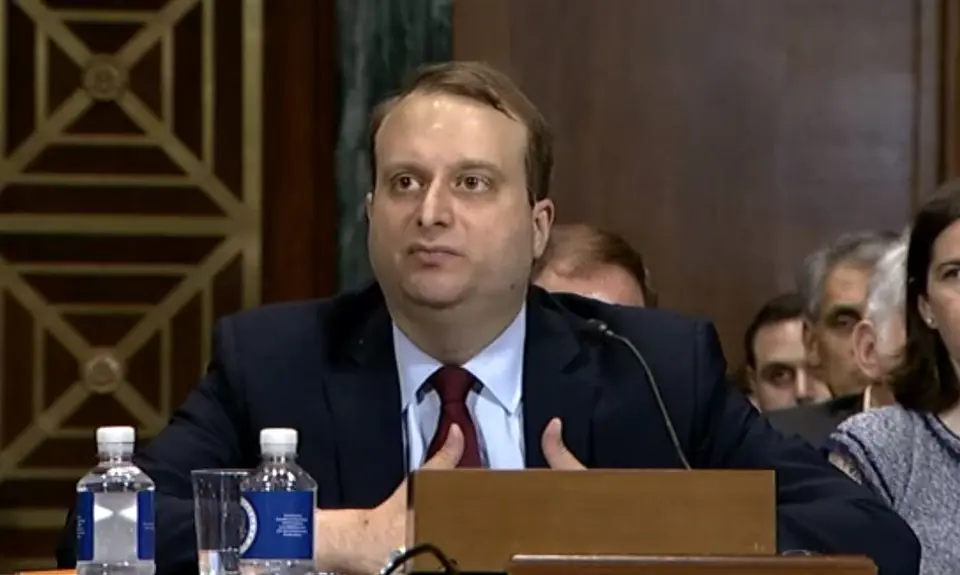“Confirmed Judges, Confirmed Fears” is a blog series documenting the harmful impact of President Trump’s judges on Americans’ rights and liberties. Cases in the series can be found by issue and by judge at this link.
Trump Second Circuit judges Steven Menashi and Richard Sullivan tried in dissent to convince the full court to rehear and dismiss a lawsuit against President Trump for violating the Constitution’s Foreign Emoluments Clause that a 3-judge panel had previously ruled could go forward. The August 2020 case is Citizens for Responsibility and Ethics in Washington (CREW) v. Trump.
In 2017, the public interest organization CREW, along with a number of hotel and restaurant owners and bookers, filed suit against President Trump, contending that because several Trump-owned buildings in New York and Washington receive room rentals and other payments from foreign governments, Trump is violating the Foreign Emoluments Clause of the Constitution. That clause provides that “no person” holding a federal office shall, without the consent of Congress, accept any “present” or “Emolument” of “any kind whatever” from any “King, Prince or foreign State.”
Without getting to the merits of the case, however, a lower court judge dismissed it, claiming that none of the plaintiffs had suffered injury and had standing to sue. On appeal, a 3-judge panel issued a 2-1 decision in 2019 that reversed the lower court and said that plaintiffs did have standing, particularly those who contended that they were losing business because foreign officials were switching to Trump-owned hotels and other businesses. A request was made that the full court rehear the case.
Twelve Second Circuit judges took part in deciding whether to rehear the case. Four, including Trump judges Menashi and Sullivan, voted to rehear the case and dissented from the decision not to do so. Among the eight who denied rehearing were George W. Bush nominee Peter Hall and Trump nominees Joseph Bianco and William Nardini.
Menashi harshly criticized the panel opinion and the decision not to rehear the case. He claimed that the panel “not only relaxes the ordinary rules of standing” but also “abandons those rules altogether.” He maintained that in order for a competitor to show injury and thus standing, precedent requires that the injury must be “certain” or “certainly impending”, while the plaintiffs in this case had offered only speculation and alleged “economic logic.” Menashi also argued that because the lawsuit had named Trump in his “official capacity”, that meant that any relief would improperly “instruct” Trump personally on “how to exercise his executive power,” which the courts have not done. Overall, Menashi asserted, the panel opinion would “convert the Judiciary into an open forum for the resolution of political or ideological disputes.”
Judge Pierre Leval, who wrote the panel ruling, responded in detail to Menashi’s arguments. He explained that Menashi’s assertion that “certain” injury must be shown is squarely contradicted by precedent, since courts on a “daily basis” accept allegations of a substantial risk of competitive injury no different than what the plaintiffs have alleged here” in cases concerning antitrust violations, false advertising, unfair competition, and other issues. The fact that some of such cases are based on statutes rather than the Constitution, Leval went on, does not matter since, as Justice Scalia has explained, there is “absolutely no basis” for ruling that whether there is injury for standing purposes depends on the “source of the asserted right.”
Leval also explained that the principle that courts do not instruct the President personally on the performance of his official duties has “no application” in this case, since it concerns Trump’s “purely private conduct of selling hotel and restaurant services.” Leval suggested that the complaint had named Trump in his official capacity because the Emoluments Clause only applies to people holding a federal office, and that if this were a problem, it could easily be remedied by amending the complaint.
Leval specifically disagreed with Menashi’s assertion that the case was simply a political or ideological dispute. He pointedly noted that Menashi had suggested “no reason why” that was the case. On the contrary, Leval went on, the panel opinion properly applied “well established Supreme Court precedent to the facts alleged in the complaint.” The fact that “the President is the defendant in this suit,” he concluded, “is “not a reason to depart from these well-established principles.” If Menashi and Sullivan had prevailed, however, that is precisely what would have occurred.
